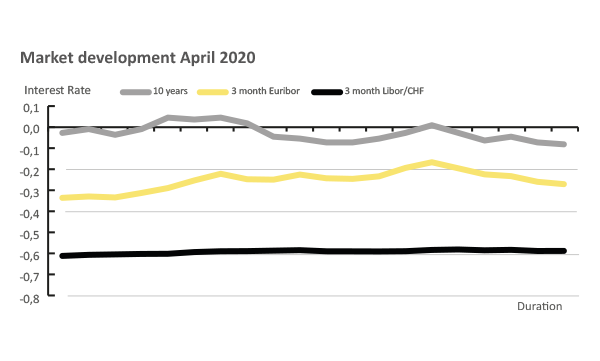Loading content …
19 May 2020
Puzzling Plurality of Opinion about the Ramifications of the Coronavirus Crisis
Even now, more than two months after the first coronavirus case in Germany, forecasts and opinions regarding the ramifications of the crisis on the economy and the real estate market remain rather puzzling. As far as real estate prices go, the opinions and assessments predict everything from stable prices all the way to a 25-percent nosedive. Let us help you sort out the diversity of forecasts.
The survey findings underlying the lat-est edition of the real estate industry barometer BF.Quartalsbarometer re-turned an unprecedented deterioration in sentiment among real estate lenders. From -3.81 points in the first quarter, the barometer score plunged to -15.24 points during Q2 2020. This outcome must, no doubt, be blamed on the very recent crisis, but also on the fact that the poll was conducted at a time when the degree of uncertainty was at a peak. Other sentiment indices showed analogous trends. The Deutsche Hypo’s Real Estate Climate index, for example, dropped by almost 40 percent. A comparison with the ifo Business Climate Index, which is based on a poll among roughly 9,000 companies, illustrates just how pessimistic this assessment is. While the ifo index does show the fastest decline on record since Germany’s unification in 1990, and the lowest score since July 2009, it only dropped about 10 percent. What these sentiment indices have in common is that they only capture assessment snapshots. This means they do not qualify as facts but represent particularly carefully measured opinions at one moment in time. It is also well known that such indices are prone to impulsive exaggerations, much like stock exchanges. There is reason to believe that a repeat of the survey, while also returning pessimistic responses, would not return a score quite as bleak as the one at quarter-end. Still, the drastic drop in sentiment in the real estate sector is extraordinary.
Residential Property Market Forecasts Vacillate between Price Erosion and Stability
On the basis of this and other forecasts, a number of different real estate industry experts and research institutes have been trying to predict how rents and prices in the various segments are likely to develop. One essay that met with a lively response by the media, for example, manifested an astounding lack of ambiguity with its hypothesis that residential real estate will suffer price drops of 15-25% in the medium term (“in the coming months”), predicting that the price bubble on the real estate markets would finally pop. Another institute reached a diametrically opposed conclusion: On the one hand, it argues, there is (probably) no real estate bubble while, on the other hand, price corrections are not (likely) to be expected or will in no case be worse than 12%. For the non academic reader, it is not always easy to see that the essay of the first case does not represent a scientific survey but merely an assessment based on plausibility considerations. In the second case, at least the attempt is made to use basic scientific methodology and the scant data available to venture more or less verifiable observations. These authors cannot predict the future either. But it is reassuring that they are the first to point out the precariousness of their findings.
Having read the surveys and forecasts published in the meantime, we realised one thing above all, namely that the degree of uncertainty has barely declined over the past four weeks. For some time yet, we will have to resign ourselves for to the fact that unfold-ing developments are even less predictable than usual. We have noted that many market players exercise a high degree of caution at the moment. We dare predict therefore that a dip in sales is to be expected for the ongoing quarter.

Disclaimer:
The article reflect the opinion of the authors. Nevertheless, the provider and authors assume no liability for the accuracy, completeness and timeliness of the information provided. In particular, the information is of a general nature and does not constitute legally binding advice.
Publisher

Francesco Fedele Prof Steffen Sebastian
Prof Steffen Sebastian
Holder of the Chair of Real Estate Finance
at IREBS, University Regensburg
Francesco Fedele
CEO, BF.direkt AG

